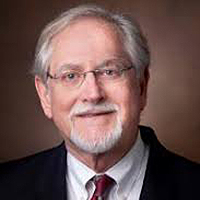The National Institute of Diabetes and Digestive and Kidney Diseases of the National Institutes of Health has renewed a five-year grant through the NIH’s flagship T32 institutional training grant program. T32 grants provide funding to support students and postdoctoral trainees working in focused areas of research that advance the NIH mission. The training plan and track record of each T32 program is evaluated every five years before a competitive renewal is awarded.
The Integrated Training in Engineering and Diabetes (ITED, T32 DK101003) program was established in 2014 to recruit talented individuals to work on research problems at the interface of engineering and diabetes. The program supports Ph.D. students and postdoctoral fellows from engineering, computer science, biomedical sciences, physics, and chemistry departments at Vanderbilt. It is funded by the NIH and receives institutional support from the Vanderbilt School of Engineering, the Vanderbilt School of Medicine Basic Sciences, and the Vanderbilt Diabetes Research and Training Center (DRTC).

Jamey Young, Cornelius Vanderbilt Professor of Engineering and professor of chemical and biomolecular engineering, has been the faculty director of ITED for the past five years and will continue to lead the program during the next funding period. “The ITED program is a sterling example of Vanderbilt’s overarching commitment to interdisciplinary research. Many trainees from engineering and physical sciences are not ideal fits for other T32 programs, and thus the ITED program fills an important gap in the training landscape at Vanderbilt,” Young said,
The program is in its 10th year and has supported the research training of 24 graduate students and 10 postdoctoral fellows. These trainees have been co-mentored by faculty experts on research projects that apply advanced biomaterials, imaging technologies, mathematical modeling, artificial intelligence, and other engineering-based approaches to the study of diabetes and metabolic diseases.

Alvin C. Powers, director of the Vanderbilt Diabetes Center and the NIDDK-funded Vanderbilt Diabetes Research and Training Center, noted that “This training grant brings together two strengths of Vanderbilt: engineering and diabetes to foster interdisciplinary research and training. The DRTC is fortunate to have a number of engineering faculty as members. This T32 grant fits perfectly into our efforts to train the next generation of scientists in diabetes.”
The proximity of engineering, basic biomedical science, and clinical departments at Vanderbilt, as well as a culture of shared mentorship and collaboration, have been key to establishing the interdisciplinary training program. A unique dual-mentoring structure is central to the ITED program, where one advisor is required to have an engineering background and the other must be a researcher with expertise in diabetes. The program currently comprises 42 faculty preceptors, split equally between those with engineering backgrounds and those specializing in diabetes research.
Two current ITED postdoctoral trainees have recently accepted tenure-track faculty positions: Kelsey Voss at the University of Virginia and Dominique Stephens at James Madison University. Supporting trainees who later advance to faculty positions and other research positions is a key metric of success for NIH T32 training programs, Young said.
Preparation of the competitive renewal was coordinated by Associate Director Philip Ko and his colleagues on the Vanderbilt Research Development & Support Team, working in collaboration with Young and the grant management team in the Department of Chemical and Biomolecular Engineering.
There are 17 Diabetes Research Centers and seven Centers for Diabetes Translation Research in the United States, funded by the NIH. Vanderbilt was the first diabetes research center funded. Today, the Vanderbilt Diabetes Research and Training Center includes 140 faculty members from 15 departments and three colleges or schools at Vanderbilt and Meharry Medical College.
In addition to ITED, there are three other NIDDK-supported training programs affiliated with the Vanderbilt DRTC: the Molecular Endocrinology Training Program (METP, T32 DK07563), directed by Richard O’Brien, the Diabetes and Endocrinology Postdoctoral Training Program (DEP, T32 DK07061), directed by Kevin Niswender, and Medical Student Research Training Program (SRTP, T35 DK007383)., directed by John Stafford.
Contact: brenda.ellis@vanderbilt.edu